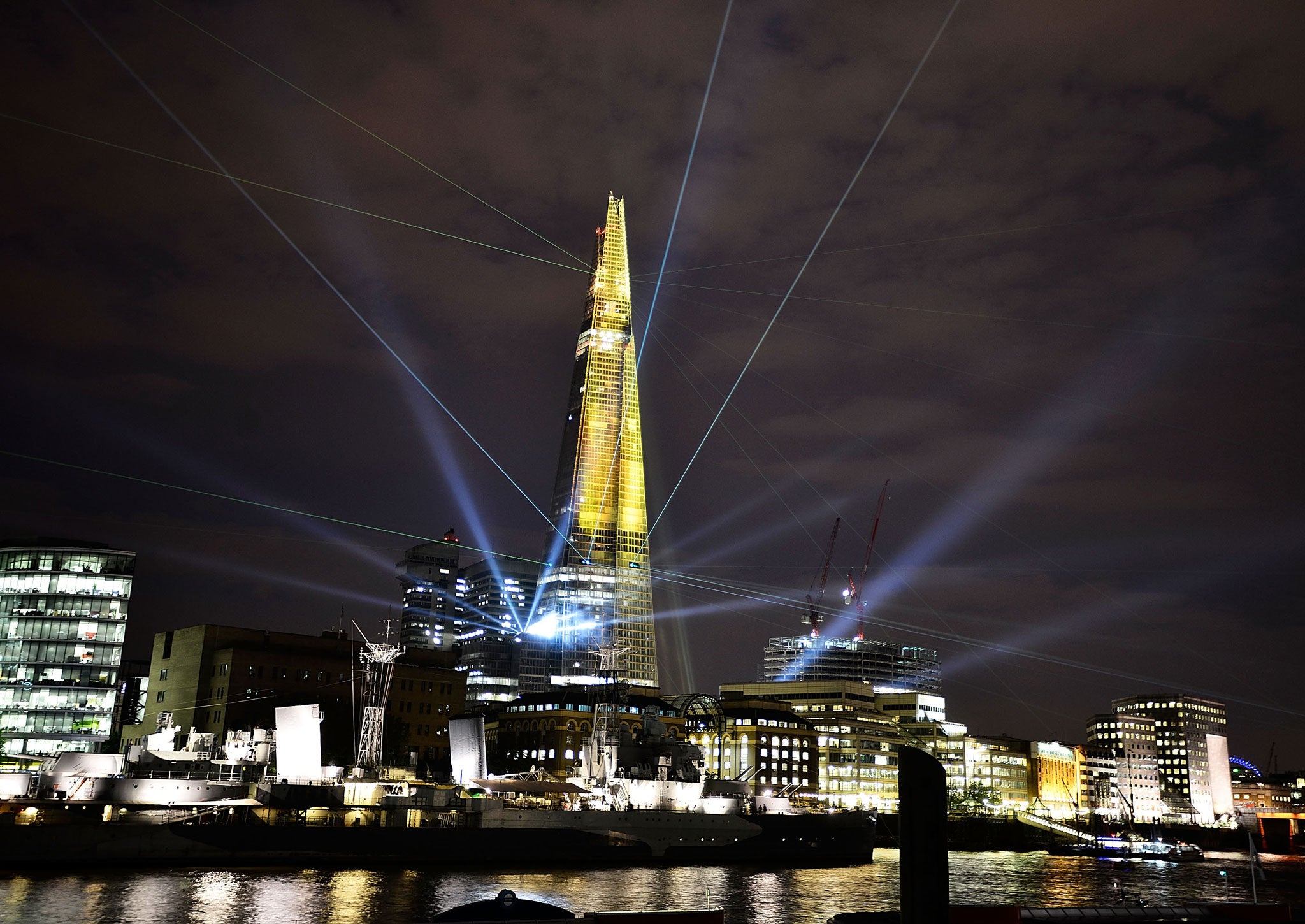Unwelcome transparency: From the Shard's Shangri-La to Swiss bank accounts
If Switzerland were to make good on their word, it would strike a massive blow at the pernicious, democracy-undermining trait of capital flight

Your support helps us to tell the story
From reproductive rights to climate change to Big Tech, The Independent is on the ground when the story is developing. Whether it's investigating the financials of Elon Musk's pro-Trump PAC or producing our latest documentary, 'The A Word', which shines a light on the American women fighting for reproductive rights, we know how important it is to parse out the facts from the messaging.
At such a critical moment in US history, we need reporters on the ground. Your donation allows us to keep sending journalists to speak to both sides of the story.
The Independent is trusted by Americans across the entire political spectrum. And unlike many other quality news outlets, we choose not to lock Americans out of our reporting and analysis with paywalls. We believe quality journalism should be available to everyone, paid for by those who can afford it.
Your support makes all the difference.It was a few weeks ago that guests at the Shangri-La – the ‘opulent’ hotel that spreads across the upper floors of the Shard – first caught sight of something rather nasty. Money is supposed to buy you privacy. The ability to look down on the world unobserved. As part of a luxury package, binoculars lie close to hand in every one of the Shangri-La’s rooms. But it wasn’t just London that opened up to view. When hotel lights flickered on, some of the skyscraper windows turned into mirrors – and in them could be seen hazy reflections of other hotel guests, as they moved about in their bedrooms. Looking out, visitors realised others could be looking in.
This dose of unwelcome transparency came at a curious moment. Because while the rich have every right to get undressed in a swanky hotel without fear of exposing their backsides, an unsought-for light is also currently being shone on less legitimate forms of privacy. For decades, at least for those who occupy the ‘top floors’ of the global wealth skyscraper, money has been able to hide itself from sight. The British Virgin Islands, the Caymans, Switzerland. Cash pours in to bank accounts in these countries, and out of the reach of Government tax collectors. But after the 2008 crash, nations could no longer afford to let the rich employ accountants who, like the magicians of old, know how to make elephantine sums of personal wealth disappear.
Estimates of the total hidden offshore vary, but the Tax Justice group suggests a figure of $32 trillion is conservative. The rest of society fills in this gaping hole in global finance: by paying more tax. Thomas Piketty, accused of errors in his bestseller, Capital in the Twenty-First Century, went on the offensive: “My estimates...do not fully take into account offshore wealth, and are likely to err on the low side.”
Until earlier this year, it looked like the status quo would, with a few nips and tucks, stay in place. Then Switzerland, the world’s largest offshore financial centre, announced it would sign up to an international programme of automatic information exchange, set up by the OECD. Where most efforts to combat tax evasion have been bungalow affairs, this could – like the Shard itself – form a towering political achievement. It would require governments to let each other know who holds money in their banks – and how much they’ve deposited. If Switzerland were to make good on their word, and the other 40 or so countries signed up, it would strike a serious blow at the pernicious, democracy-undermining trait of capital flight.
But recent signs suggest the Swiss are looking for wriggle room. They may not be so keen after all to let the light in. The importance of this reform cannot be overstated. In person, the rich can live wherever they please, behind high walls, tinted-windows and obstreperous lawyers. But their money must sit with the rest of ours – where the government knows about it.
Join our commenting forum
Join thought-provoking conversations, follow other Independent readers and see their replies
Comments